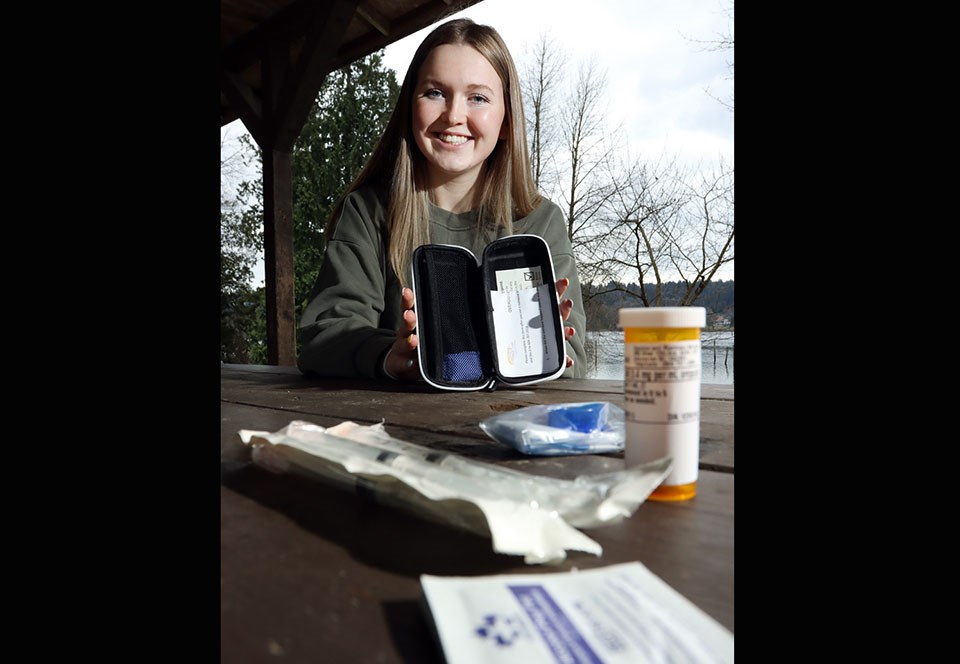Criticism of young people is often that they aren’t interested in much beyond their social media.
Think again.
In the Tri-Cities, 17 young people are tackling one of B.C’s biggest health crises: the toxic drug overdose epidemic that has taken 24 local lives so far this year.
These young people, including SFU student Chloe Goodison, are taking time out of their busy lives this summer to offer education webinars for Tri-City residents — for free.
It may be an uncomfortable topic for some, but Goodison and her NaloxHome team consisting of youth aged 18 to 25 refuse to ignore the crisis.
“We started running community-style presentations on Zoom. Anyone who wants to watch and learn about signs of overdoses and how to use Naloxone can take part,” said Goodison, who lives in Port Moody and was 16 when she saw her first overdose.
She was aboard a SkyTrain from Coquitlam to Port Moody when she spotted a young woman looking ill and confused. Suddenly, the woman collapsed onto her lap.
In shock, Goodison called 911. It was only later when she learned the woman had suffered an overdose.
She made it a priority to learn about the overdose crisis and started a training program for youth with the assistance of Fraser Health and School District 43 (SD43).
Since starting NaloxHome, she’s trained more than a dozen young people on a Fraser Health module about substance use, overdoses and how to prevent them, with webinars delivered to more than 550 Tri-City students.
Since school ended, the NaloxHome team has been delivering webinars to Tri-City residents interested in knowing more, with more workshops to come this summer.
The informative sessions are 45 minutes long with participants able to ask questions for more details.
“We’re getting a lot of questions about where you can get Naloxone, how long has the overdose crisis been in existence, a couple about how to get involved NaloxHome, some personal experience, which is harder to answer, and a couple regarding our beliefs on things.”
The group promotes harm reduction, has an Instagram page, and offers the weekly webinars here.
Chloe said she’s continuing two work on NaloxHome on weekends while she works for the city of Coquitlam as a camp leader.
Calling it a “passion project,” she’s happy to see the community opening about the issue that is usually stigmatized.
“I think the feedback we’ve been getting is positive and people are thinking and saying ‘I didn’t know about Naloxone’ or saying things like ‘in my family we don’t talk about this.’
“We’re cracking open the conversation not in a way that scares but just in a way that engages them.”



